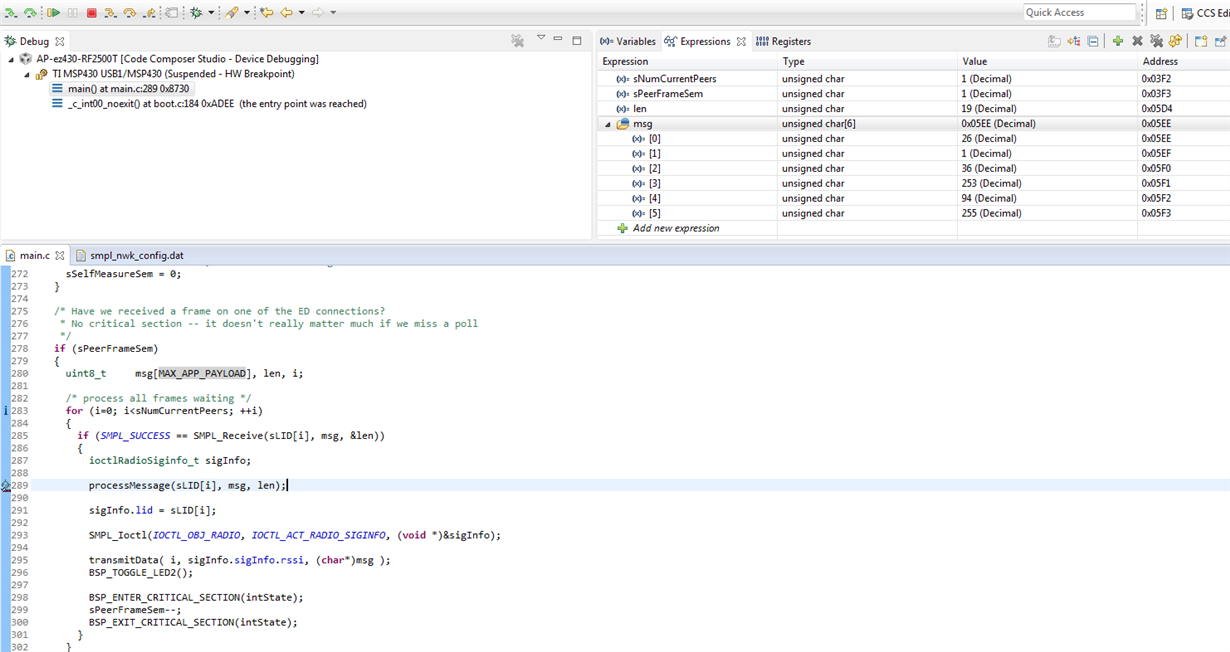Hi!
I'm trying to change the MAX_APP_PAYLOAD constant value but it's always set to 14.
smpl_nwk_config.dat definition:
# Maximum size of application payload
--define=MAX_APP_PAYLOAD=20
In my program, I print the MAX_APP_PAYLOAD to serial port and shows the value 14.
i = MAX_APP_PAYLOAD;
tx_byte(i);
tx_send_wait("\n\r",2);
I tried to change to many values and always the printed value is 14.
In my end device, I send the message like this:
msgTX[0] = 0x00;
msgTX[1] = MSG_CAMBIO_ENTRADA;
msgTX[2] = RTCYEARH;
msgTX[3] = RTCYEARL;
msgTX[4] = RTCMON;
msgTX[5] = RTCDAY;
msgTX[6] = RTCHOUR;
msgTX[7] = RTCMIN;
msgTX[8] = RTCSEC;
msgTX[9] = MSG_P1_7;
if (!BSP_LED1_IS_ON())
msgTX[10] = 1;
else
msgTX[10] = 0;
if (SMPL_SUCCESS == SMPL_SendOpt(AP_lID,msgTX,11,SMPL_TXOPTION_ACKREQ))
BSP_TOGGLE_LED1();
If I use "11" as length, the message is not received by the AP. But if I change it to 10, it works (with 10 bytes message instead of 11, of course).
I dont know what I'm doing wrong. Do I need to change the MAX_APP_PAYLOAD in some other place?
thanks!!


